Ethics, Wittgenstein and the Frankfurt School, and Cavell

Interview by Richard Marshall

'It was already clear to me that mainstream research programs in ...[philosophy of mind].... depend for their fundamental structures on the narrower, or subjectivity-extruding, conception of objectivity. I was committed to developing an approach to mind that rejects these structures, making room for an account of mental concepts as metaphysically transparent and irreducibly ethical.'
'The upshot is that there appears to be no room within ethics for humanistic thinking or artistic expression as such, and this represents a massive and practically catastrophic contraction of ethics.'
'Members of the Frankfurt School were among those who helped disseminate a picture of Wittgenstein as recommending critique-stymying modes of thought. This includes, prominently, Herbert Marcuse, who, in One-Dimensional Man [1964], in an interpretative performance arguably less defensible even than Gellner’s—among other things, because it simply equated ordinary language philosophy with mainstream analytic philosophy—lambasted Wittgenstein for, as Marcuse saw it, limiting us to thinking that would destroy the possibility of critical awareness.'
'If the topic is productive links between Wittgenstein and Critical Theory, it is fair to say that Wittgenstein can serve as a guide to the recovery of critique as conceived by early members of the Frankfurt School. His writings contain resources for a powerful defense of the sort of “wider” account of rationality that accommodates an unqualified image of immanent critique, shedding light on its nature and on difficulties it poses.'
'Cavell’s idea is that a democracy thrives when its members enjoy the freedom and resources to, identify, explore and express their particular interests and ambitions—while also respecting and responding to the interests and ambitions of their fellow citizens.'
Alice Crary is a moral and social philosopher who has written widely on issues in metaethics, moral psychology and normative ethics, getting animalsethically into view, philosophy and literature, philosophy and feminism, critical animal studies, critical disability studies, and Critical Theory as well as on figures such as Austin, Cavell, Diamond, Foot, Murdoch and Wittgenstein. Here she discusses ethics and objectivity, Wittgenstein's conception of mind and its relation to ethics, why the arts and humanities are important for ethics, the link between Wittgenstein and the Frankfurt School, Cavell's link to this as well, and finally Cavell's approach to democracy.

3:16: What made you become a philosopher?
Alice Crary: When I arrived at Harvard in the mid 1980s to start my undergraduate studies, I wasn’t actively planning to study philosophy, but I was receptive to the idea. One factor was that I had a brilliant older sister, Jen, who had started a degree in philosophy at Dartmouth. The adults I most admired had been in involved in the civil rights movement, or overlapping social justice movements, and I was captivated by questions about what it would take to understand the world so that its injustices showed up in a manner that informed action on behalf of greater justice. Another factor in my starting in philosophy was that the Harvard Philosophy Department was then a welcoming place for someone with interests like mine.
Having begun, I found the idea of continuing with philosophy attractive. But it took some time for me to believe that this was a real possibility. I hadn’t previously known any academics, and it was easy to think, in an inchoate way, that these were people of a different kind, with skills that I was cut off from acquiring. So, my path to further study meandered. I explored some career paths that were more familiar to me—teaching, city politics—both while doing courses and while taking a year off from my studies. But eventually I focused on philosophy.
I had the great fortune of doing an undergraduate thesis with Hilary Putnam. I wrote on Wittgenstein’s later view of language, exploring themes that today are still important for me. I had already encountered the work of Stanley Cavell and Cora Diamond, and I took my cue from them in emphasizing how, for Wittgenstein, our sensibility is implicated in our every discursive move. One of my claims was that this matters because of its implications for what is involved in improving our understanding of aspects of the world and our place in it. It follows from this image of discourse that making improvements here may call on us to make an effort of mind that isn’t merely or narrowly intellectual. It may call on us to shift our sense of importance, and in this sense to work on ourselves.
The experience of having my undergraduate thesis accepted as a serious piece of philosophical work is what launched me. By the time I arrived at graduate school—at the University of Pittsburgh—a year later, there was wasn’t anything else I wanted to do. Being able to investigate pressing questions about the nature of moral and social life seemed like, and still seems like, a tremendous gift. It’s not that I didn’t have any difficulties after that. There were subsequent occasions on which I was painfully pressed to ask whether I could go on in philosophy. But I never lost the desire to do so.
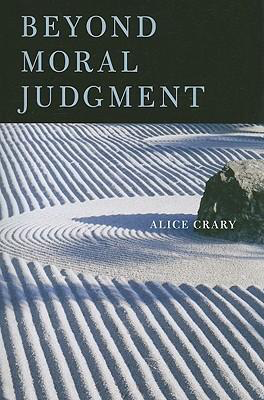
3:16: You tend to represent moral realism as a push-back position against an ethically indifferent metaphysics. Wouldn’t it be easier to just say that no metaphysics has anything important to say about ethics and go from there?
AC: I need to rephrase this question slightly in order to answer it. “Moral realism” is a label that I deliberately don’t use in describing my image of ethics. Not that, abstractly considered, the term is obviously ill-suited to capture things I believe. It is, for instance, a conviction of mine that that there are morally salient aspects of the world that as such lend themselves to empirical discovery. A case could easily be made for speaking of moral realism in this connection. But that would likely generate confusion. When I claim that, say, humans and animals have moral qualities that are as such observable, I work with an understanding of what the world is like, and of what is involved in knowing it, that is foreign to familiar discussions of moral realism. These discussions are often structured by the assumption that objectivity excludes anything that is only adequately conceivable in terms of reference to human subjectivity. Moral realism is frequently envisioned as an improbable position on which moral values are objective in this subjectivity-extruding sense while still somehow having a direct bearing on action and choice. Thus does the specter of Mackie’s “argument from queerness” still haunt the halls of moral philosophy.
A great deal of my work has been devoted to investigating the grip on the contemporary philosophical imagination of conceptions of objectivity—of the sorts operative in these conversations about moral realism—that take the expulsion of everything subjective as their hallmarks. I have repeatedly argued that restrictions these conceptions impose on what kinds of things count as objective are not justified by the ultimately weak considerations adduced in the conceptions’ favor. I have tried to show not only that we should reject the restrictions but also that doing so is urgent because necessary for getting morally and politically salient aspects of our lives into view. That is why the well-worn label “moral realism,” used in reference to my work in ethics, is likely to mislead. It is likely to mislead because I start from a metaphysical posture that is foreign to most accounts of what moral realism is like.
All of this bears on how to characterize the role of metaphysical considerations in my work in ethics. The outlook I defend is partly characterized by the lifting of a priori restrictions that seem to prevent anything only understandable in terms of subjective responses from qualifying as objective. If the absence of such prior constraints is equated with the absence of metaphysics, then, indeed, it seems reasonable to speak in reference to my work of a kind of abstention from metaphysics. I can certainly see the point of this gloss. But I find it more helpful to describe matters differently. To talk about a thinker’s “metaphysics” is, for me, to talk about the kinds of things they do recognize, or are prepared to recognize, as woven into the real fabric of the world. Insofar as I call for raising restrictions that are standardly imposed on the kinds of things that can thus count as real, it makes sense to say, not that I have opted out of the business of metaphysics, but that I have a relatively liberal or relaxed metaphysical posture. That is the point of some of my terms of art. It is what I am signaling when I say I favor a “wider” conception of objectivity. I mean a conception loose or wide enough to encompass, inter alia, ethical values.
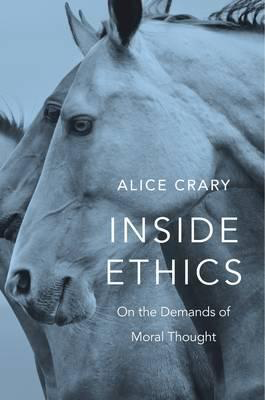
3:16: What is Wittgenstein’s irregular conception of mind, and why does it matter to you?
AC: Two related trains of thought led me to the Wittgenstein-influenced intervention in philosophy of mind that is central to Inside Ethics. One has to do with a respect in which my book Beyond Moral Judgment came to seem to me to be incomplete. There I defend the wider conception of objectivity, appealing to it in arguing that there are morally significant features of the world that are as such observable. I describe this metaphysical shift with an eye to challenging received assumptions about what moral thought is like—to showing not only that sensitivities are essential to our ability to follow rational lines of moral thought but, further, that we may need to refine or further develop our sensitivities in order to make the connections constitutive of such lines of thought. Some of the “widely rational” stretches of thought that I discuss feature not moral concepts but concepts for different aspects of mind. That moral thought need not involve specifically moral concepts is a leitmotif of Beyond Moral Judgment. What I came to regard as a lacuna is I didn’t explain how mental concepts are essentially morally inflected.
A second train of thought suggested the need for an analogous incursion into philosophy of mind. As a graduate student I began researching and teaching animal ethics. I sympathized with advocates who were appalled by awful things humans do to animals and who wanted to show that animals merit radically better treatment. But I couldn’t accept many of the most influential arguments. These arguments tend to presuppose, wrongly in my view, that the task of getting animals empirically into view in a manner relevant to ethics is one not for ethics proper but for disciplines presumed to be outside ethics. Once it had struck me that this presupposition structures major contributions to animal ethics, it hit me that I could describe Beyond Moral Judgment as challenging similar presuppositions about what is involved in getting human beings empirically into view for ethics. That is what led me to see my early book as lacking an account of the irredeemably moral character of mental concepts. By the time it seemed important to me to be able to give such an account, I also wanted to show that the concepts we use in talking about animal minds are likewise ineliminably ethical.
These two trains of thought are what directed my attention to philosophy of mind in Inside Ethics. It was already clear to me that mainstream research programs in this subdiscipline depend for their fundamental structures on the narrower, or subjectivity-extruding, conception of objectivity. I was committed to developing an approach to mind that rejects these structures, making room for an account of mental concepts as metaphysically transparent and irreducibly ethical. A number of considerations speak for here turning to Wittgenstein. Some of the most widely discussed passages from Wittgenstein’s later philosophy—his famous remarks on rule-following and his treatment of privacy—aim to discredit narrower conceptions of objectivity and accommodate wider alternatives; Wittgenstein adopts a widely objective stance in adducing considerations for an account of mental concepts as essentially world-guided and irredeemably ethical; and the account of mental concepts that thus emerges from his thought can be shown to have a straightforward bearing on animal minds as well as on human ones. Taken together, these points provide the basic contours of Wittgenstein’s irregular image of mind. Here, in a phrase, is why the image matters to me. To accept it is to allow that humans and animals have moral qualities that are as such open to view—and that they are, in this sense, inside ethics.
3:16: Do you think that denying ethically rich insights from the arts and humanities into ethics hampers our ability to see harms done to both people and animals?
AC: That would be a way to capture part of the practical motivation for my work in ethics. I attack the view—which I describe as narrowly rational—that it is in theory possible to grasp any real connection of thought from an abstract, ethically neutral vantage point. I do so to show that there are ethically decisive considerations that this view leaves us unequipped to recognize, and I take an interest in work in the different humanities, as well as in literature and the other arts, because such work affords resources for uncovering things inaccessible to an abstract gaze.
Humanistic and artistic productions characteristically lead us to consider aspects of the world from particular, ethically charged perspectives. Anyone operating in a narrowly rational logical space effectively imposes severe constraints on how such productions can contribute to understanding. To be sure, moral philosophers routinely make use of material from, say, poems, novels, historical narratives and films. But, insofar as they respect narrowly rational constraints, they are obliged to regard whatever they cull from these works as available to thought independently of any evaluative perspectives the works invite us to adopt. They cannot help but take any insights with which they credit the works to be extractable in the sense of being there independently of aesthetic qualities in virtue of which the works inculcate these perspectives. The upshot is that there appears to be no room within ethics for humanistic thinking or artistic expression as such, and this represents a massive and practically catastrophic contraction of ethics. Within my ethical writings, alongside showing that this contraction is philosophically unjustifiable, I bring out how it is morally disastrous—among other things, by identifying harms to human beings and animals that it leaves us incapable of registering.
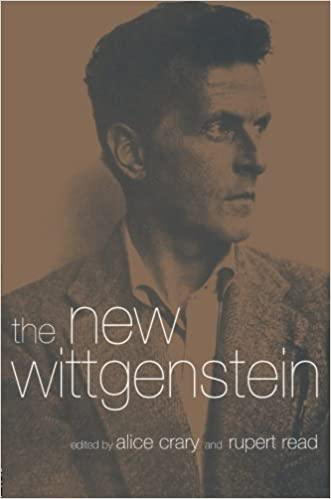
3:16: Is there an interesting link between Wittgenstein’s philosophy and the Frankfurt school? And could Cavell also be so linked?
AC: There are in fact many links—links that, properly seen, can contribute productively to how we conceive of liberating social thought. To be sure, it would be possible to tell a story—it is one has yet to be adequately told—about how some of these links have been either overlooked or distorted beyond recognition. A plausible telling would have to reach back to 1959, when Ernest Gellner published Words and Things, arguing that Wittgenstein was advocating a cramped and uncritical take on philosophical and political questions. Gellner’s book was widely recognized by philosophers as the shoddy piece of interpretative work that it was, but that didn’t keep it from starting a high-profile, transatlantic discussion about the allegedly reactionary bent of Wittgensteinian “ordinary language philosophy,” setting the tone for subsequent Wittgenstein exegesis, which has witnessed the publication of at least one major book on Wittgenstein’s supposed conservativism every decade since, with an even higher count if we include the writings of the many commentators who represent Wittgenstein as reactionary simply in virtue of purportedly depicting everyday linguistic usage as inviolable. Members of the Frankfurt School were among those who helped disseminate a picture of Wittgenstein as recommending critique-stymying modes of thought. This includes, prominently, Herbert Marcuse, who, in One-Dimensional Man [1964], in an interpretative performance arguably less defensible even than Gellner’s—among other things, because it simply equated ordinary language philosophy with mainstream analytic philosophy—lambasted Wittgenstein for, as Marcuse saw it, limiting us to thinking that would destroy the possibility of critical awareness.
There has been pushback against this internally varied image of Wittgenstein’s supposed conservatism since as early as the mid 1970s. Incidentally, one of my very first articles, “Wittgenstein’s Philosophy in Relation to Political Thought” [2000] was a contribution to this opposition. But it shouldn’t surprise anyone that the image of Wittgenstein-as-conservative continues to resonate. While many of those who advocate it do so as champions of the left, those who resist, striving to bring out the interest of Wittgenstein’s philosophy for critical social thought, are hampered by ideologically contorted institutional settings in which “Wittgensteinian” has become a term of political and philosophical abuse.
That is a very condensed explanation of why it has been difficult to see that there are important lines of filiation between Wittgenstein and members of the Frankfurt School. What gets missed is that Wittgenstein equips us to advance what is arguably the signature project of the Frankfurt School’s Institute for Social Research. In the late 1930s, affiliates of the Institute began to describe themselves as in agreement in their quest for a “critical theory of society.” What they sought under this heading was an undistorted account of our social circumstances that would equip us to liberate ourselves from ideologically-disguised forms of social coercion. Such a theory was envisioned as one that would affirm the idea that attitudes we have as participants in social practices shape the concepts available to us to understand our lives. It would do this by beginning from practical attitudes in a way that established the resulting theorizing as “immanent.” This immanent aspect was conceived as existing side-by-side with a universal or context-independent authority, and, bearing in mind this pair of aims, thinkers who identified with aspirations of the Frankfurt school started to talk about themselves as united in their commitment to the enterprise of “immanent critique.”
Some of the thinkers who belong to the Frankfurt School’s first generation had distinctive views of how this project was best carried out. Partly drawing on a conception of our cognitive predicament inherited from Hegel’s Phenomenology, Max Horkheimer and Theodor Adorno represented themselves as entitled to an understanding of rationality that is “wider” in my sense, with the result that it appeared to them that there are no genuine obstacles to saying that social criticism that is indelibly inflected by practical attitudes, and thus immanent, can be rationally sound, thereby qualifying as full-blooded critique.
But, in intervening years, the idea that we can thus straightforwardly arrive at a notion of immanent critique fell out of favor. One of the formative episodes in the development of Critical Theory was an intense quarrel with positivism in philosophy and sociology in the 1960s and 1970s. Although in this context members of the Frankfurt School were in conversation with Anglo-analytic philosophy, they remained seemingly unaware—and the bit of political-intellectual history I just recited helps to explain why—that two of the most devastating attacks on positivistic modes of thought from within British philosophical circles had been launched precisely by Wittgenstein and Austin. This led to some keen historical ironies, such as Jürgen Habermas’s use of aspects of Austin’s work on speech acts for allegedly anti-positivistic project—his discourse ethics—that Austin himself would have regarded as retaining key positivistic presuppositions. More fundamentally it helps to make sense of the fact that contemporary members of the Frankfurt School largely count as parts of their intellectual inheritance both an avowed antipathy to positivism and a residually positivistic hostility to objective ethical values—as well as to the wider conception of rationality that would be needed to accommodate a worldly terrain partly made up of such values. This stance appears to problematize the task of arriving at a satisfactory account of immanent critique. A reasonable approach to organizing the different accounts of immanent critique currently available today is to depict them as efforts to attain core aims of critical theory while respecting the constraints of what I call a narrower conception of rationality. This, in my view, is like trying to jump with one’s feet pinned to the floor.
If the topic is productive links between Wittgenstein and Critical Theory, it is fair to say that Wittgenstein can serve as a guide to the recovery of critique as conceived by early members of the Frankfurt School. His writings contain resources for a powerful defense of the sort of “wider” account of rationality that accommodates an unqualified image of immanent critique, shedding light on its nature and on difficulties it poses. While it is true that Wittgenstein, for all his allusions to the “darkness of [his] time,” does not proceed with the minutely sensitive sociological attention to horrors of modernity that is characteristic of Adorno, it is also true that he is an unparalleled critic of ways in which narrower or positivistic modes of thought, of sorts detrimental to critique, creep back into our thought even at moments at which we are endeavoring to free ourselves from them.
Stanley Cavell has an important place in this stretch of the history of philosophy. Cavell’s marvelously sensitive and faithful reading of Wittgenstein’s later philosophy, presented in its fundamentals already in the early 1960s, represented the decisive challenge to the more dominant narrative about Wittgenstein’s supposed reactionary strain. A key focus of Cavell’s own reflections on the political and social significance of Wittgenstein’s philosophy was on connections between its themes and ideals of democratic conversation in American philosophy, above all, in the writings of Emerson and Thoreau. Cavell also influenced a number of thinkers who directly contested the suggestion that Wittgenstein’s thought was somehow irredeemably conservative. This includes the political theorist Hannah Pitkin, who in 1972 produced the first book-length rebuttal to the sorts of views of Wittgenstein advanced by Gellner, Marcuse et al., and it also includes Cavell’s colleague Putnam—whose great sympathy with Cavell’s reading of Wittgenstein led to his co-teaching a course on the Philosophical Investigations with him—and who used Wittgensteinian ideas in treatments over many decades of issues in social and political philosophy, including in an extended critical engagement with the work of Habermas.
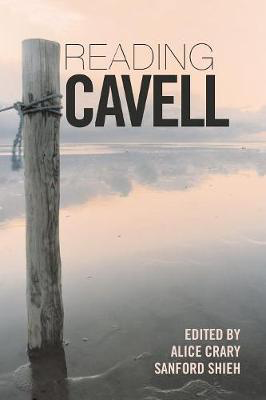
3:16: How does Cavell help us to be a citizen in Trump’s America, or any other profoundly messed up nation?
AC: Throughout his work, Cavell develops an image of democracy as, in its optimal form, a conversation in which each individual’s participation reflects the exercise of their own judgment. Cavell sometimes spells out the demands of judging in a manner that presupposes a Wittgensteinian thought to the effect that our operations with words necessarily reflect our sense of the importance of the similarities among contexts of their use. The idea is that to judge, to think for oneself, essentially involves drawing on and developing our own sensibility. A view on these lines is what underlies Cavell’s characteristic exhortations to us to pay attention to what we ourselves find striking and take seriously and question our own reactions. That, as he sees it, is a key responsibility we shoulder as citizens of the imperfect societies in which we find ourselves.
Cavell’s idea is that a democracy thrives when its members enjoy the freedom and resources to, identify, explore and express their particular interests and ambitions—while also respecting and responding to the interests and ambitions of their fellow citizens. He invites us to see that our most solemn obligation as human beings and citizens in—to use Charles Mills’ term of art—the “ill-ordered” societies in which we live is to do all we can to ensure that these conditions obtain. That is how, to use the language of your question, Cavell helps us to be citizens in Trump’s America. He rallies us by urging us to recognize that to deliberately erode the conditions for individual judgment—for instance, by exploiting existing social resentments and fanning them into unthinking enthusiasms, indifferent to the difference between truth and lie—is to do nothing less than issue an existential threat to democratic politics.
3:16: For the curious readers here at 3:16, are there five books other than your own that you can recommend to take us further into your philosophical world?
AC: Here are five books that, of late, I have been reading, or returning to and re-reading, finding them helpful to think with.
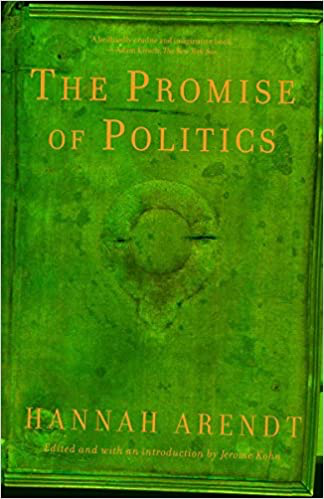
(1) Over the last year, I undertook to read Hannah Arendt’s work chronologically, at least as far as possible, and one collection I found myself pausing over is The Promise of Politics and, more specifically, the essay “Socrates,” which develops a vision of politics that I find appealing and arresting partly for its similarity to Cavell’s.
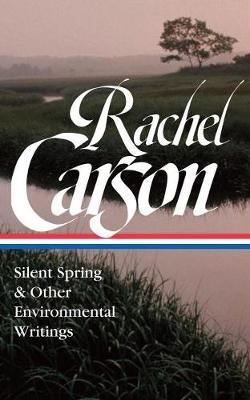
(2) Having long worked in the area of philosophy and animals, I have alsobeen reading my way into environmental philosophy. One work that left its mark on my thinking—unsurprisingly, given its massive influence—is Rachel Carson’s Silent Spring (
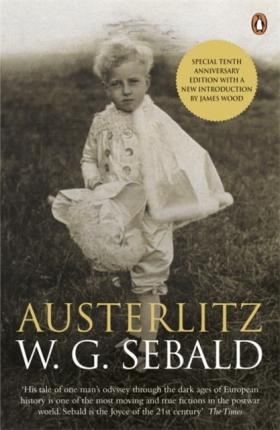
3) My investigations in environmental philosophy sparked my interest in ongoing conversations, in the humanities and social sciences, that presuppose that, in order to make sense of anthropogenic climate change, we need to find a way to bring together, on the one hand, critical histories about inequalities and grave injustices and, on the other, a natural history of the human species. These topics brought to my mind debates in moral philosophy that I have participated in about the possibility of a satisfactory ethical naturalism, and they also brought to my mind a literary author, W.G. Sebald, whom I admire and have written about partly because he consistently describes human beings in a manner that is simultaneously critical and natural-historical, perhaps with greatest virtuosity in his book Austerlitz.
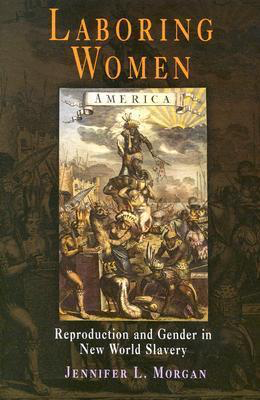
(4) For the last several years, I have been extending my work in the area of philosophy and animals, writing about how invidious comparisons to animals are used to degrade and marginalize groups of humans, and, among the many works I have read about historical and actual forms of such animalization, one that stands out, for the light it sheds on the violent, capital-driven creation of categories of race and sex that still structure U.S. society today, is Jennifer Morgan’s Laboring Women: Reproduction and Gender in New World Slavery, about the horrific treatment of African women in the early English colonies.
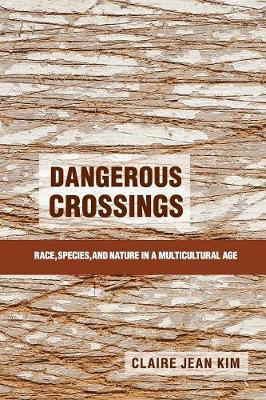
(5) One of my preoccupations in thinking about animalizing ideologies is to show that a politically farsighted response has to involve, alongside a commitment to resisting the wrongs to human beings that they represent, a willingness to revalue the lives of other animals so that they are no longer conceived as “lower” beings. One book that has made at least as much of a mark on my thinking about these matters as any other, and that I have taught and returned to, is Claire Jean Kim’s Dangerous Crossings: Race, Species and Nature in a Multicultural Age.
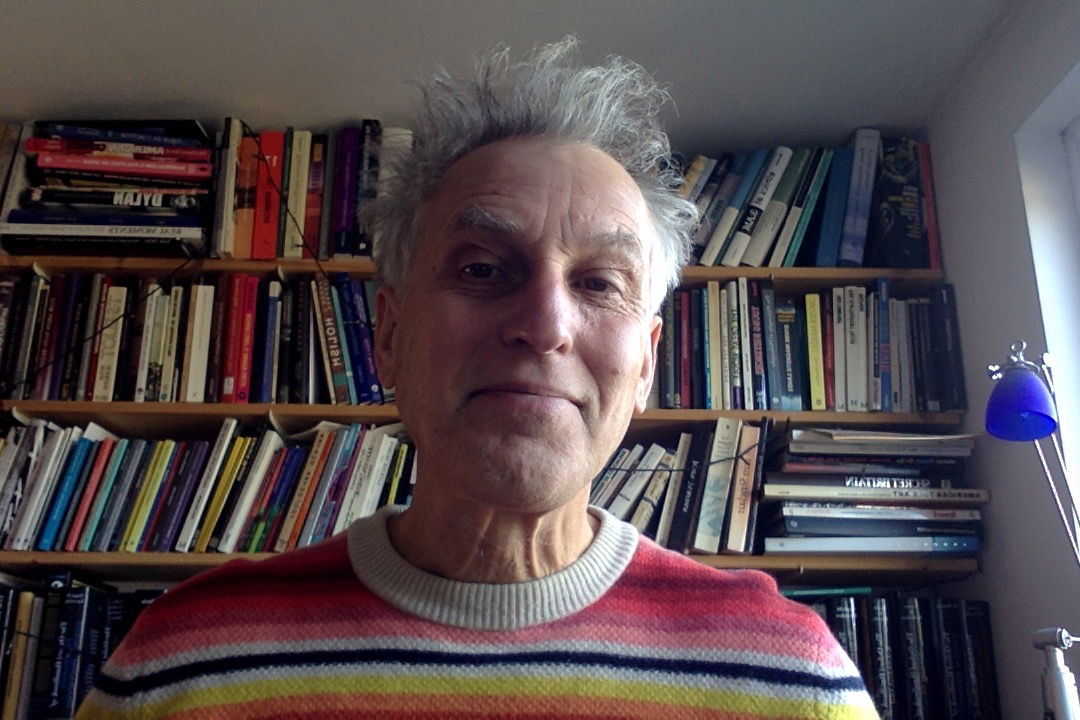
ABOUT THE INTERVIEWER
Richard Marshall is biding his time.
Buy his second book here or his first book here to keep him biding!
End Times Series: the index of interviewees
End Time series: the themes
Huw Price's Flickering Shadows series.